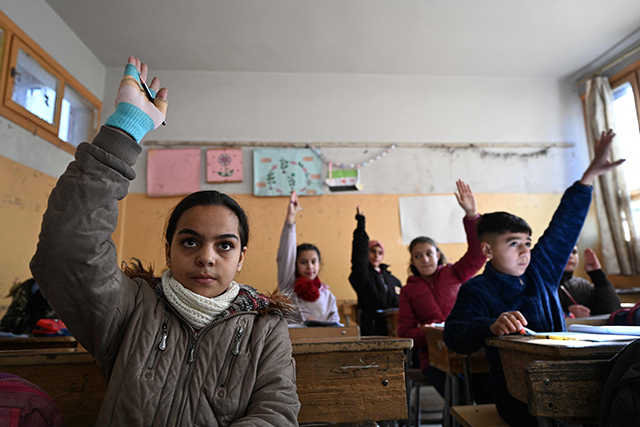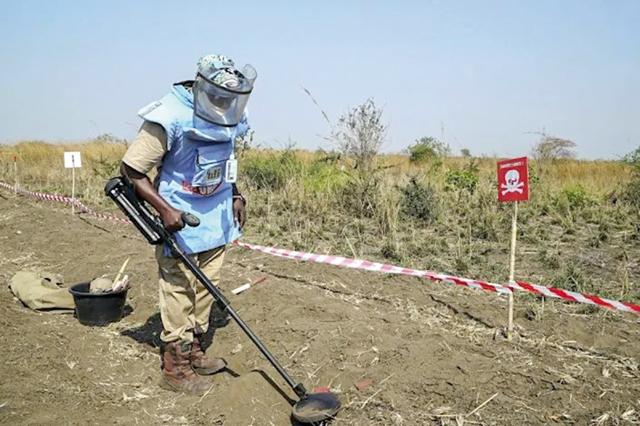You are here
Cambodia uses ‘life-saving’ rats to sniff out deadly landmines
By Reuters - Jul 14,2015 - Last updated at Jul 14,2015

A rat being trained by the Cambodian Mine Action Centre is pictured on an inactive landmine field in Siem Reap province on Thursday (Reuters photo)
SIEM REAP, Cambodia — Pit, only two and with just one eye, needed only 11 minutes before he detected a deadly mine buried in a Cambodian field, work that humans with metal detectors could have taken up to five days to investigate.
But Pit is not human. He is part of a team of elite rats, imported from Africa, that Cambodia is training to sniff out landmines that still dot the countryside after decades of conflict.
"Under a clear sky, he would have been quicker," said Hul Sokheng, a veteran Cambodian deminer, who oversees training of 12 handlers on how to work with 15 large rats to clear Cambodia's farmland and rural villages of bombs.
"These are life-saving rats," he said under rainy skies.
Their work could prove vital in a country where unexploded devices, including mines and unexploded shells, have killed nearly 20,000 Cambodians and wounded about 44,000 since 1979, according to the Cambodian government.
Pit is able to smell highly explosive TNT inside landmines, watched over by two handlers who tie him up to a rope as the one-eyed rat searches through the grass.
Pit and his rat friends — all Gambian pouched rats — were deployed to Cambodia from Tanzania in April by a Belgian non-profit organisation, APOPO, to help clear mines. They've been trained since they were 4 weeks old.
At the training field, Pit sniffed TNT scented objects, stopped, dug a little, and was rewarded by his handler with banana.
"He knows his duty: search," said Hul Sokheng.
Landmines and explosive remnants of war have taken a severe toll on Cambodians. The Cambodian Mine Victim Information Service has recorded 19,684 people killed since 1979.
Cambodia is still littered with landmines after emerging from decades of war, including the 1970s Khmer Rouge "Killing Fields" genocide, leaving it with one of the world's highest disability rates.
APOPO has used the rodents for mine-clearing projects in several countries, including Angola, Mozambique, Thailand, Laos and Vietnam.
One of the biggest advantages of using rats is that landmines pose no danger to them because the rats are not heavy enough to trigger an explosion.
For their handlers, the rats are more than bomb detectors.
"They are not just rats, they are like my brothers," said 41-year-old handler Meas Chamroeun.
Related Articles
ISTANBUL / BEIRUT — More than 7,600 Syrian migrants crossed the Turkish border to return home in the five days after the fall of Syrian stro
JUBA — The UN mine clearance worker gingerly sifts through a patch of dirt with a trowel in scrubland on the outskirts of a village near Sou
Brilliant minds wrapped around heady notions ranging from injecting medicine by laser to cherishing life on Earth while seeking a future in the stars as the TED conference began Monday.
















